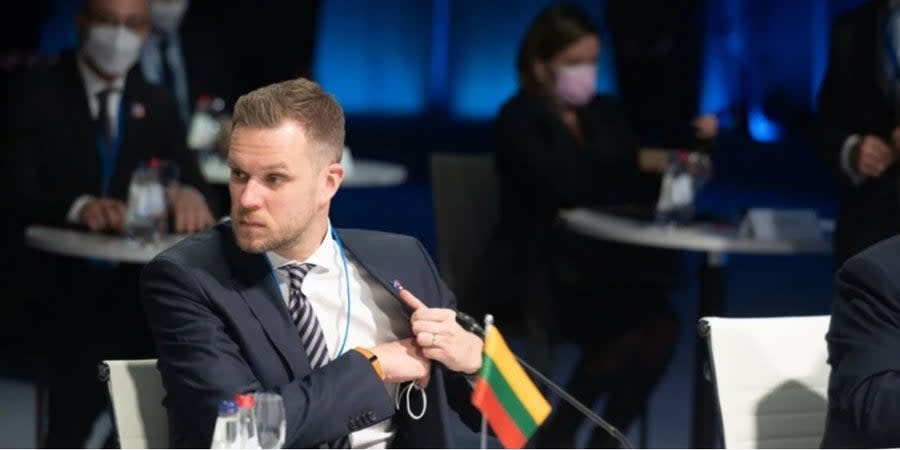Sending troops to Ukraine signals Western independence from Putin — Lithuanian FM

- Oops!Something went wrong.Please try again later.
Sending foreign troops to Ukraine would show Russian dictator Vladimir Putin that it is not up to him to decide how the West will help Kyiv, Lithuanian Foreign Minister Gabrielius Landsbergis said in an interview with The Guardian on May 9.
"The West could deploy military instructors to Ukraine to train the Ukrainian Armed Forces," stated Gabrielius Landsbergis.
"Our troops have previously trained Ukrainians in Ukraine before the war, a tradition that has persisted for many years," he explained.
"Returning to this practice could be feasible and serve as an initial step in President Macron’s initiative."
Read also: Western military instructors could go to Ukraine if air defense improves — Lithuanian PM
According to the Lithuanian diplomat, conducting military training in Ukraine would be "more practical" than doing so in NATO countries.
"You don’t need to transport them all the way," he noted. "Everything they need is right there. Trainers stationed as part of the coalition could be defended with air defense, implying that part of Ukrainian airspace could be protected."
This move "would indicate to Putin that the method of aiding Ukraine is not solely his decision," Landsbergis said.
While the Lithuanian parliament has granted the government authorization for training in Ukraine, it's deemed preferable to do so within a larger coalition.
"Lithuania is prepared to dispatch its soldiers for a training mission in Ukraine, although no such request has been made," stated Lithuanian Prime Minister Ingrida Šimonytė earlier.
Read also: Macron pushes West to lose ‘self-imposed red lines’ in Ukraine — Lithuanian FM
Possible deployment of NATO troops to Ukraine
Following a conference on supporting Ukraine in Paris on Feb. 26, French President Emmanuel Macron announced that Ukraine's Western allies would form a coalition to supply the Ukrainian Armed Forces with long-range weapons. Macron also suggested that sending Western troops to Ukraine in the future should not be dismissed.
However, Macron's proposals were rejected by Poland, the United States, Germany, Czechia, Canada, and the United Kingdom.
Read also: EU moves closer to using Russian assets for Ukraine aid
Estonian Prime Minister Kaja Kallas and Lithuanian Defense Minister Arvydas Anušauskas kept the option open for sending troops, but clarified that they would be exclusively for training missions.
Dutch Army General Staff Chief, General Onno Eichelsheim, said that 'all options should remain open.'
European NATO states have been exploring the possibility of deploying NATO troops to Ukraine for several weeks, according to a report by AFP.
French Prime Minister Gabriel Attal stated on Feb. 29 that French troops could participate in the conflict alongside Ukraine to safeguard specific borders, engage in exercises, or assist with ground air defense. However, he ruled out the direct engagement of French soldiers 'directly on the frontline.'
Polish Foreign Minister Radosław Sikorski announced on April 4 that NATO foreign ministers had agreed to establish a special NATO mission to enhance support for Ukraine.
We’re bringing the voice of Ukraine to the world. Support us with a one-time donation, or become a Patron!
Read the original article on The New Voice of Ukraine

